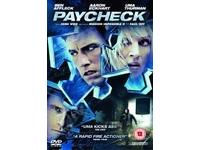The greatest work ever - The U.S constitution
I don't believe anything else on this planet does more to promote freedom than the U.S Constitution. As each U.S president is sworn into office and takes the oath, they declare to uphold the constitution. No other nation has this romantic but extremely important tradition built into their history and their institutions. It was designed to safeguard people against tyranny, imperialism and government intrusion.
It seems such a tragedy to me that some recent U.S presidents have done such an appalling job of upholding the constitution, and that so few Americans appreciate what a great work it is.
Whilst every other government, even those of Britain, Canada and Australia can easily continue to expand the reach and powers of the state, at the mere whim of the party in power, the Founding Father's formed the United States to ensure and protect the future liberty of its peoples, and defend against tyranny and imperialism. America had earned it's independence from the British empire, and fought dearly for the notions of freedom and liberty.
This text, adopted in 1787, and ratified in 1788, is the supreme legal document in America, and lays out the charter and structure of government.
In 1789, the Bill of Rights was introduced. This included the first 10 amendments to the U.S constitution, each of them clearly and specifically designed to limit the power of governments and grant freedom to it's people. Forget the chorus of 21st century governments, the U.N and it's charter or even human rights groups. They may talk of peace and prosperity, but they have no qualms using tyranny and coercion to achieve their political goals.
Here is the original text of the Bill of Rights.
- First Amendment: addresses the rights of freedom of speech, freedom of the press, the freedom of assembly, freedom of petition, and also freedom of religion, both in terms of prohibiting the Congressional establishment of religion and protecting the right to free exercise of religion.
- Second Amendment: known as the right to bear arms.
- Third Amendment: prohibits the government from using private homes as quarters for soldiers without the consent of the owners. The only existing case law regarding this amendment is a lower court decision in the case of Engblom v. Carey. [4]
- Fourth Amendment: guards against searches, arrests, and seizures of property without a specific warrant or a "probable cause" to believe a crime has been committed. Some rights to privacy have been inferred from this amendment and others by the Supreme Court.
- Fifth Amendment: forbids trial for a major crime except after indictment by a grand jury; prohibits repeated trials for the same offense after an acquittal (except in certain very limited circumstances); forbids punishment without due process of law; and provides that an accused person may not be compelled to testify against himself (this is also known as "Taking the fifth" or "Pleading the fifth"). This is regarded as the "rights of the accused" amendment. It also prohibits government from taking private property without "just compensation," the basis of eminent domain in the United States.
- Sixth Amendment: guarantees a speedy public trial for criminal offenses. It requires trial by a jury (of peers), guarantees the right to legal counsel for the accused, and guarantees that the accused may require witnesses to attend the trial and testify in the presence of the accused. It also guarantees the accused a right to know the charges against him. The Sixth Amendment has several court cases associated with it, including Powell v. Alabama, United States v. Wong Kim Ark, Gideon v. Wainwright, and Crawford v. Washington. In 1966, the Supreme Court ruled that the fifth amendment prohibition on forced self incrimination and the sixth amendment clause on right to counsel were to be made known to all persons placed under arrest, and as a result these clauses have become known as the Miranda rights.
- Seventh Amendment: assures trial by jury in civil cases involving anything valued at more than 20 United States dollars at the time, which is currently worth $300, when accounting for inflation.
- Eighth Amendment: forbids excessive bail or fines, and cruel and unusual punishment.
- Ninth Amendment: declares that the listing of individual rights in the Constitution and Bill of Rights is not meant to be comprehensive; and that the people have other rights not specifically mentioned, but rather retained elsewhere by the people.
- Tenth Amendment: provides that powers that the Constitution does not delegate to the United States and does not prohibit the states from exercising, are "reserved to the States respectively, or to the people."





